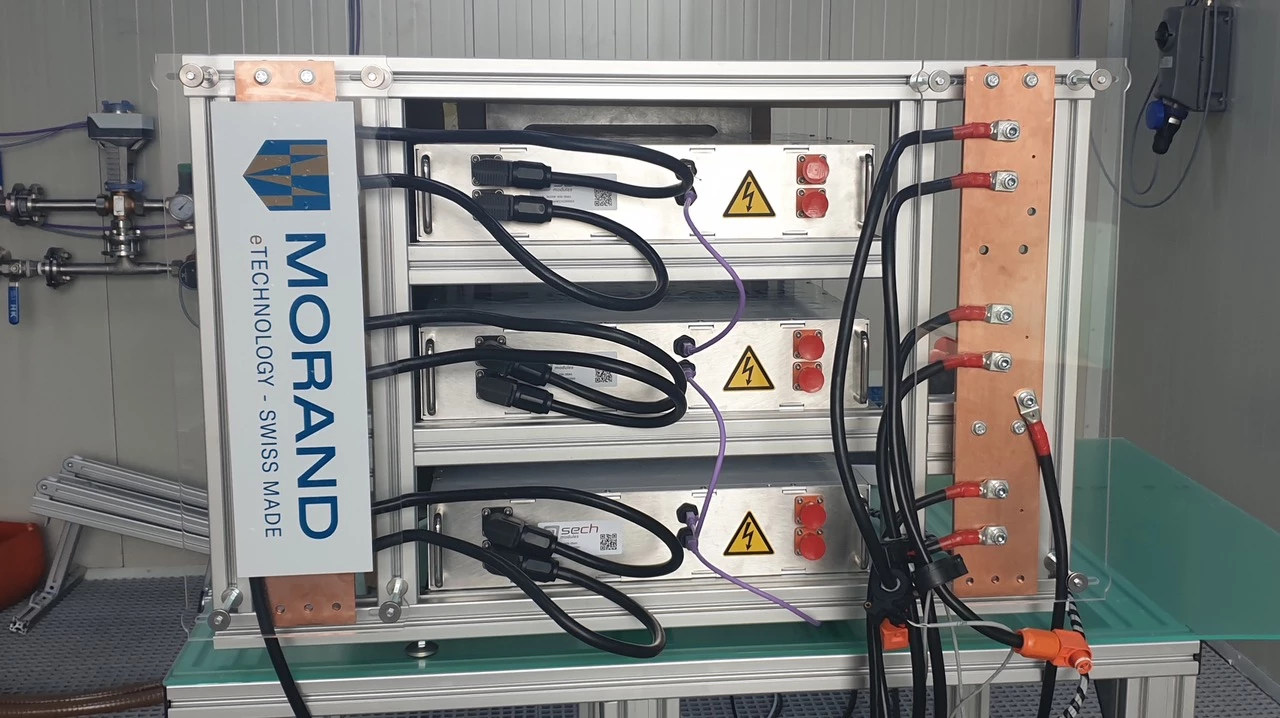An electric car that can charge in as little time as it takes to pump a gas vehicle has long been the dream of existing and would-be EV drivers. But what if it could charge even more quickly? The average gas fill-up takes two minutes, according to the American Petroleum Institute, with other estimates coming in higher. A new electric energy storage technology being developed by Swiss tech startup Morand could offer electric city car charging times in slightly more than half that two-minute time. A cross between traditional batteries and ultracapacitors, the company's eTechnology units offer potential game-changing charging rates, coupled with the possibility of much longer lifespans than lithium-ion batteries.
Morand is the namesake of former F1 driver and team manager Benoît Morand, who was integral in developing the Hope Racing Oreco 01 Hybrid, the first hybrid prototype to start at the 24 Hours of Le Mans over a decade ago. Along with a small team of other former F1 engineers and managers, Morand has set out to apply hybrid and electric technologies derived from the upper echelons of motorsport to more practical everyday solutions.
Morand has been hard at work developing what it calls eTechnology, describing it as an energy storage solution that combines characteristics of an ultracapacitor with those of a chemical battery. In part of its test and evaluation program, the company says a 7.2-kWh eTechnology prototype was able to recharge to 80 percent in just 72 seconds, 98 percent in 120 seconds, and 100 percent in 2.5 minutes at up to 900 A/360 kW. It says independent testing was performed by Geo Technology.

Of course, 7.2 kWh is a far cry from the 100-kWh+ battery packs that feature in some of the market's longest-range electric vehicles. Morand has focused on smaller-capacity applications, such as drones and ebikes, explaining that eTechnology is best-suited to applications requiring fast, semi-frequent charges of five minutes or less. The example automobile with 7.2-kWh battery would be a small city car like the Citroën Ami and its 5.5-kWh battery pack.
As far as ebikes go, Morand estimates that a bike with a 6-Ah battery could charge in six minutes at a lower rate of 3.2 kW. That would be a game changer for ebikes, which typically take hours to recharge. With a ~six-minute charging time, a rider could plug in and get back all or most of the bike's range on a short break, without the need to buy and carry a spare battery. That could make ebikes a more viable option for replacing cars on longer-distance daily commutes and errands.

Among the other advantages Morand cites for eTechnology are efficient operation in extreme temperatures and the potential for a far greater number of charge/discharge cycles. It claims that it has safely tested the units to more than 50,000 cycles, tens of times more than traditional battery packs.
Morand says it is working with a manufacturing partner on low-volume production and planning to ramp up production to make eTechnology more cost competitive with lithium-ion batteries. It's also looking for investors to supply it with capital for scaling production.
Source: Morand





